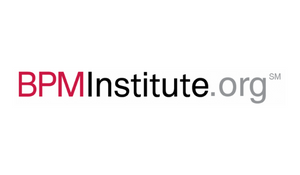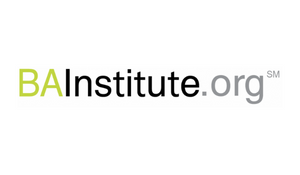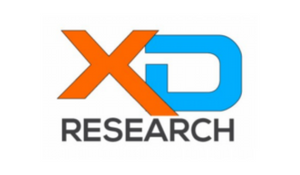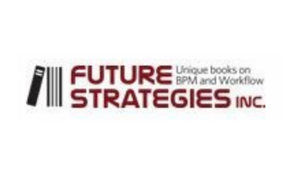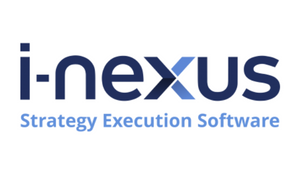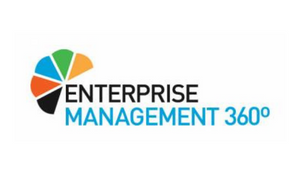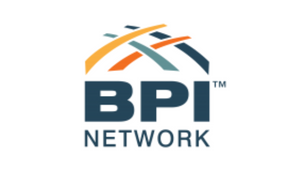
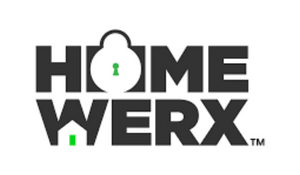
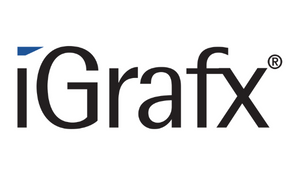
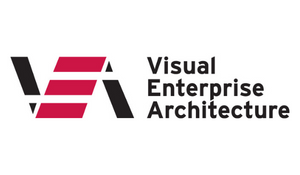
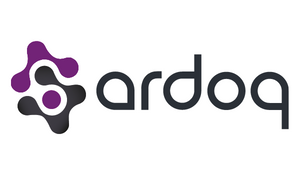
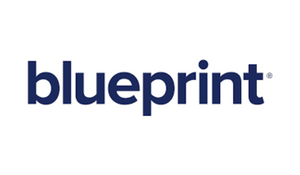
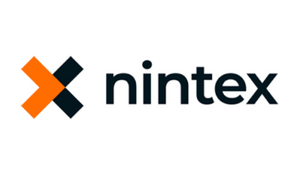
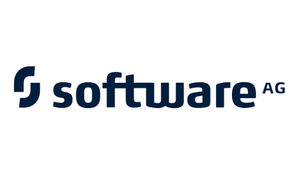
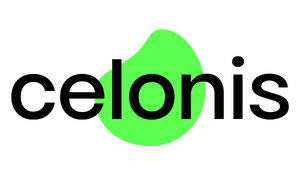
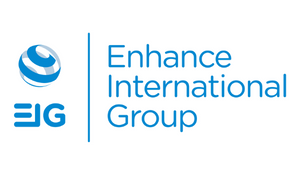
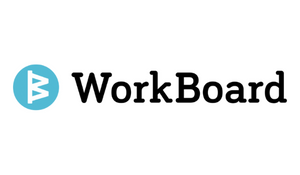
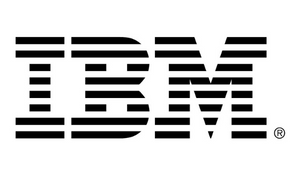
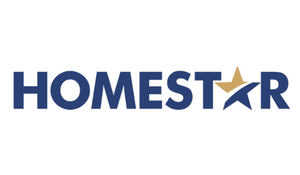
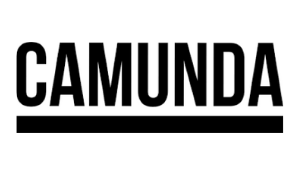
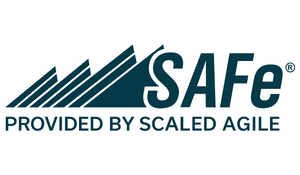
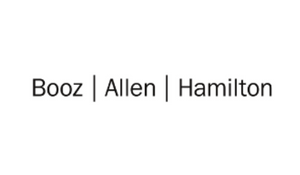
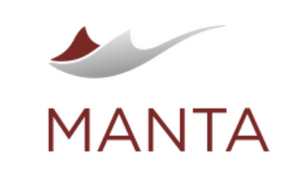
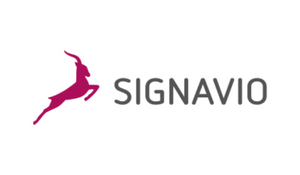
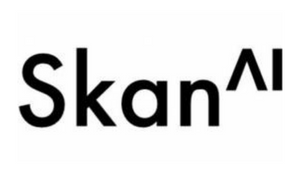

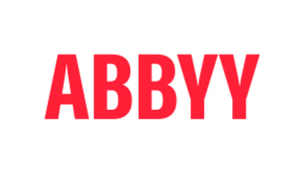
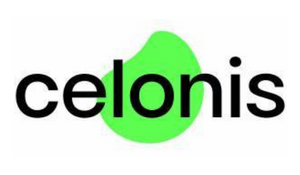
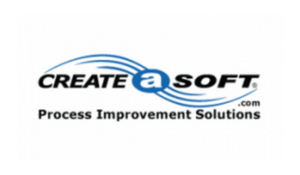

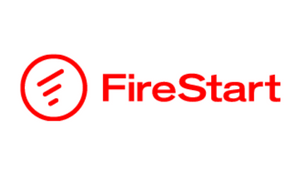

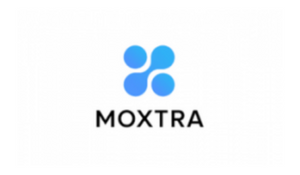
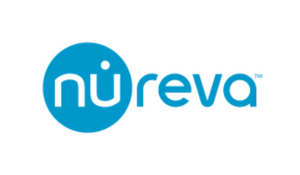
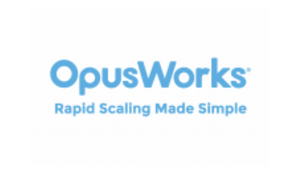
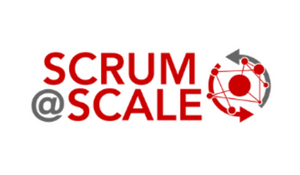
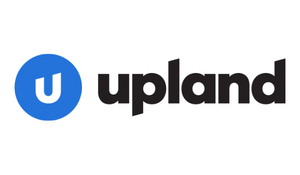
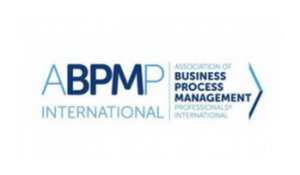
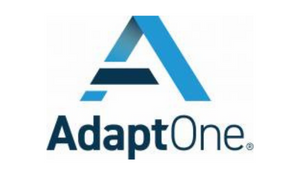
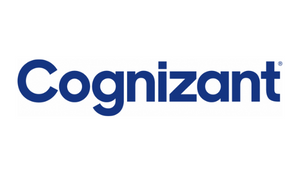
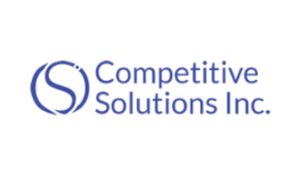
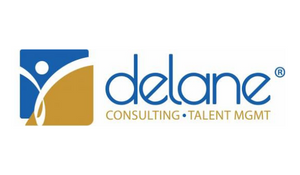

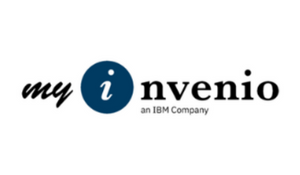
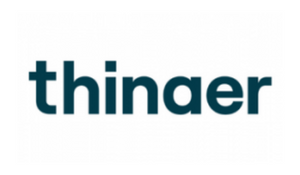
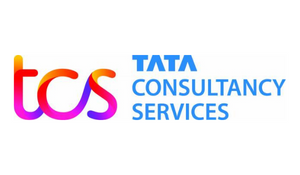
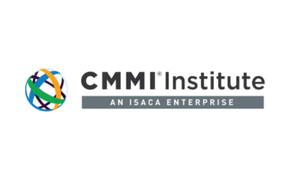
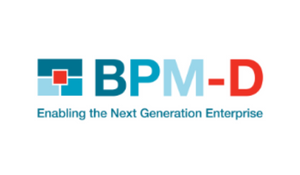
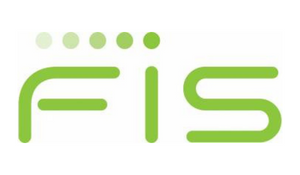
Courtesy of Christopher Hodges' below is a transcript of his speaking session on 'How to use Noble Automation to improve your business and stop the great resignation Audience: Leaders grappling with the challenge of automating while retaining top talent' to Build a Thriving Enterprise that took place at the RPA & Intelligent Automation Live Virtual Conference.
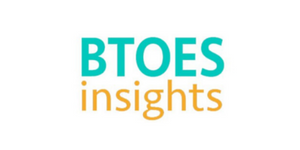

Session Information:
Noble Automation Now is both a call to action and a holistic approach to achieving more success by combining Intelligent Automation with inspired leadership. Employing Noble Automation leads to more product and service innovation, higher employee engagement and successful business transformation.
Automation and AI are essential now and will be even more so in the future. Helping humans be heroes in this age of automation is the key to serving all stakeholders and building winning companies and teams. Fear and struggles give way to excitement and success.
Leadership takeaways:
Session Transcript:
Buzz, and I'm talking about Christopher Hodges. Christopher is the author of Noble Automation Now and is an executive consultant and speaker for 25 years as a G corporate executive and consultant partner at Accenture and Deloitte. He has helped Fortune 500 companies understand, apply, and lead with technology.
He works with business leaders to successfully embrace intelligent automation while inspiring and retaining the top talent that's fleeting today. So Chris, what a pleasure to have you with us. Thank you so much for taking the time to share your expertise and your wisdom with our global audience today.
Just say, thank you very much. I'm hoping you can hear me when I was standing as far back, sound to hopefully work for it.
We didn't hear us are unclear. So it sounds great.
Fantastic. OK, well, let me just say to everybody, thank you for attending today.
But more importantly than that, thank you for being in this, you know, an ecosystem of people who are trying to make business processes innovation, really so much more important in the world because it drives us all forward. So we're all in that club together, It's a fairly large club. So we probably won't know everybody's name. I'd like to start my presentation here.
Jack Welch had a small problem, which meant that I had a very big problem.
But I'm getting a little ahead of myself because this story is about technology adoption.
And it's about leadership.
And it's about how do you get the most out of the young people on your teams and your whole team, yourself, if you're the team leader, how do you get the most out of that?
And it starts with a boxy green Volvo.
Well, OK, not quite this Boxee, but I'll get back to that.
It was 996, and I always leaving the United States Navy, my last tour in the United States Navy. And those of you who think about the Navy, you might think of something romantic like this fantastic ship in the sunset.
But the truth was, I was living in London. I was on shore duty, and I was finishing of graduate school. So it wasn't so glamorous and it looked more like it was fielding.
But most importantly, I was joining Jack Welch's, GE, and Six Sigma. And in those days, six Sigma was the Blockchain and cryptocurrency and the web trio of today.
And Jack was completely behind it.
So, I guess, like, the best way to say this is to say, I was leaving GE and I was leaving, unfortunately, with two kids, graduate school loans and a brand-new Volvo that, frankly, I could barely afford.
And you might ask, Well, why would you recklessly extend yourself for a brand new Volvo?
And the answer is, because growing up, I value quality, stability, and praise from a father figure. Well, you can see the three of those right. Quality is six Sigma. Stability is a Volvo.
Jack Welch was a great fatherly figure so I ended up in Silicon Valley. This building wasn't there at the time. I ended up in Silicon Valley with my Asian wife, a perfect, combination from a place to relocate to the United States.
And we couldn't afford to buy a house, All we could do was rent.
We didn't have a dog, so the volo kind of became the family pet and sort of sense of stability.
And so that's where I worked for three years.
To stay tuned for houses later, I landed my first job, running e-business, and six Sigma for a GE business in Tokyo, which is pretty exciting. My wife was super excited to go back to her home country.
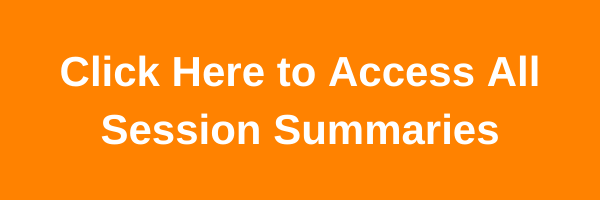 I was thrilled to until I met my boss at the welcome meeting at the AMA Hotel.
I was thrilled to until I met my boss at the welcome meeting at the AMA Hotel.
Maybe you've been to the Tiffany Yockey restaurant on the 36th floor of the ANA hotel.
Think Benihana but without that, the antics and the burning volcanoes of onions and all that.
Instead, there, antic is to put live shrimp on a grill and cover it with a stainless steel dish.
Pretty hard to watch Kennedy Ickes Anyway, so I jumped off the elevator ride.
I was all excited, reached out my hand and said, Well, I'm here to run six Sigma any business for you to my new boss who I've never met before.
And he looked at me and he said, well, that's too bad, because the two things I don't care about.
or six Sigma.
Any business.
I would, was feeling pretty enthusiastic before that.
But I felt immediately after that, a little bit more like the shrimp on the grill.
And as my enthusiasm evaporated, I realized I was going to go back to the hotel room and say, to my wife, we may need to reconsider this job.
But when I got back to the room, she was so excited to be back in Tokyo and I just I said, Well, I'm going to have to grin and bear it and make this happen, right? That's all there is to it.
But now he has a big problem that Volvo, the family pet, was back in Japan.
And I either had to spend an incredible amount of money to ship it to Japan or sell it.
And so I asked you, would you sell the family pet?
Well, neither would I. So, we shipped it to Tokyo, left-hand drive at all.
Pretty expensive.
Anyway, so, my day, I think Leslie worked to implement six Sigma any business. I loved it.
But it was Thanksgiving, the boss I had, and then on the weekends, we could drive all-around 3% of the vote was fantastic.
So, about a year later, Jack Welch announced that he was going to hold court on all the businesses in, in Tokyo, In Japan, at the Tokyo four Seasons Hotel. That's pretty exciting.
-1.png?width=600&name=Email%20Graphic%20Virtual%20Conferences%20(4)-1.png) And my boss begrudgingly gave me two pages and five minutes to talk about everything I was doing.
And my boss begrudgingly gave me two pages and five minutes to talk about everything I was doing.
Can you think about an opportunity where you only had five minutes to sort of save or ruin your career? Well, that's kind of how it felt for me.
So the only big day Jack sat in the middle of a conference table, like this.
Actually, this, is from that hotel, And everybody came in and talked to them about their various parts of the business.
So Mid-morning, Jack turns over a page in the presentations, he always had a paper copy, and he looked at me, and he said, OK, Chris, what do you got?
And this is what it felt like.
So the next five minutes went by with blurred, you know, Tunnel Vision focused on his face.
I quickly tried to present the work that we're doing in both those areas. Specifically, our first electronic document approval process. Think of intelligent automation here, 20 years ago, a very simple project.
I got to the end of my five minutes on time.
And Jack asked two very tough questions. The guy was insanely insightful.
You know, take a deep breath. And I got them right? Which was fantastic.
And then he took his black Sharpie pen, which he was so famous for using.
And I could see him write best page Jack on the slide.
It was everything I could do to not crawl across the table and grab this PowerPoint slides. You know, that, I can you imagine, right? But I didn't want it in my career, so I didn't jump across the table.
So the meeting ended.
I got up to leave, and I had to walk out of this room.
And I had to walk, sort of whisper, close to my boss, and he didn't even make eye contact.
So there, I had made this big effort to make my part in business, and in his job, frankly, look good.
And he couldn't even say thank you.
So on International glamor of Tokyo, whenever you, it's meaningless, if nobody cares about what you're doing.
Think about that where we are in some of the places with bosses in intelligent automation.
So what I said to myself, as I was leaving the room.
I'm never going to let this happen to anyone else.
If I'm in that situation because Jack, now I found out he was sold on quality and e-business but some of his leadership team was not.
So Jax problem had become my problem G or G a few years after that.
And what I took with me was a burning passion for quality innovation and people, and along came intelligent automation years later.
So some things have changed between then and now, many things aside from ... between then and now. And one of the things that changed is what used to just be the end of Indiana Jones, and the Raiders of the Lost Ark, is now the global supply chain chaos all over the place, getting stuck and peers imports, and whatever.
But a more important thing that's changed is the workforce.
The workforce now looks at X, and behaves very differently, and the up and coming young, people, who are gonna make, these companies, happen to go forward. Drive progress, are now more. Gen Z are millennials. And guess what?
Millennials, as we all know. And some of you on this call are millennials. They don't put up with the kind of garbage some of us put up with years ago. When they don't like it, they just leave. They just walk out the door, the demand, a better boss. Another thing that's changed.
That little documentation, document approval process.
We did pales in comparison to what the levels of intelligent automation and AI robotics can do today.
It's exponential difference.
Another thing that changed Jack left, his successor, it struggled.
And the new CEO of GE, Guess what? He's focused on transformation, process improvement, and innovation. So the world is turned full circle.
.png?width=742&name=Screenshot%20(4).png) But some things are still the same.
But some things are still the same.
And as you all may know, McKinsey conducted a study in 20 19 that is the benchmark in this area, and it shows that 70% of all transformations fail.
And we're doing transformations faster.
So what that means is, we are destroying value faster than we've ever destroyed it before.
Think about it, that that is really not a good place to be.
And another thing that, unfortunately, is still the same, is there are millions of young people, millions of mid-career people, all over the world, who are miserable and their jobs, desperate to be heroic.
But instead living lives of quiet desperation, as Henry David Thoreau would say, Why is that because there are still far too many bosses like my boss in Tokyo?
What does all this mean? What does the implication? Well, my thought on what the implication is. it's very clear.
The world still needs transformation. We're not on this call. We're not watching this downloaded later. For no reason.
The world desperately needs transformation, and humans longed to be heroes.
So combining those two critical opportunities.
Why should anybody care?
Well, aside from what I've already said, people are resigning and just disappearing out of the workforce.
So unless you plan on resigning tomorrow, you're gonna, you're going to show up to the Office post coven, and there's going to be anybody there. Or the people who are gonna be. they're not necessarily the people you want to be there.
Unless we can help people rise to the occasion and have more meaningful, engaged jobs with intelligent automation.
What we need people to be able to do And what they want to do is to be heroes, enlarge, or small ways.
Well, what do I mean by hero?
Fly through the sky and have X-ray vision and advocate.
A hero is a person who realizes more of their potential, the average, normal person around them.
But, more importantly, they're conquering their own lesser selves, their transcending the limitations I had before, and that's what makes us feel wonderful.
So as an expert, as a definition.
So as an expert in this space, a man named Joseph Campbell, who died about 20 years ago when he died, he was the leading world authority on mythology, and he wrote several books. But he wrote a book called, The Hero With a thousand Faces.
With a hero a thousand faces was, was tracing the mythology of cultures all over the world. Navajo, Indians, Russians, Chinese, Japanese, all these tribes, the inner within the Indians.
All these different tribes, all these different countries and what he found was the hero's journey is a story that was in all of those cultures.
Why is that?
What does this hero's journey?
Well, you know this, your journey, Know it from some of these movies, you know, for many books as well. But think of what happens in the hub or the Bourne Identity or the Matrix or Harry Potter.
All of these films are based on the hero's journey. And of course, Star Wars is based on the hero's journey.
But before we thing, I'm just talking about movies and books.
There are, of course, real heroes in the world out here who follow those same hero's journey that you find in those movies. You may know almost everyone on that screen.
There may only be one person on that screen.
I suspect that you do not know, although you may.
Her name is Sunita Williams, and she is the only classmate. I have from the Naval Academy in Annapolis, who became an astronaut. And she has spent more days on the International Space Station. Then I have spent on an aircraft carrier.
And I know it was an Indian woman growing up in the United States. She overcame quite a few barriers and limitations in a pretty much all male world at NASA to become an astronaut.
She's kind of a hero for our classmates or our class.
Well, what about you and your company?
What about the hero's journey for you and your company? And what I'm suggesting is everyone has the opportunity to take the hero's journey.
So what are what's the hero's journey look like?
Well, here's a very quick summary. I'm not going to go through this slide because there's too much on it.
But I wanted to tell you that the hero's journey itself, several pieces as he goes around, starts at the top of the clock and goes around as if time is going.
But I thought I'd show it to you in a simplified way. That would make it much clearer. And of course, you can go back and look at the slide later.
So the hero's journey is three basic phases and it goes from the worldview we're in to the world. You're going into, transformation, where you're going into, and then you come back to the world.
you work, and you bring something with you, and it starts with the separation.
Well, what does separation mean?
It means separating and realizing that the world you're leaving behind is different. So think of Neo in the matrix. He has to take that red pill if you haven't seen the matrix.
He takes the red pill and when he takes it, he realizes the world is completely different than he thought it was before.
For Harry Potter, Harry Potter gets a bunch of letters in the box. These magical letters they tell them is going off to Hogwarts, to become a wizard.
He had no idea, he was going to become a Wizard, or in a sad story, Luke Skywalker comes back and finds his whole branch burned to the ground, by the empire that is separation from the old.
So the next phase is initiation. So initiation is where, OK, I've separated from the old, it was hard to do Difficult. It was, I didn't want to leave that warm bed or warm place, and now you learn these new tricks and things that you're actually going to do.
Let's think of an example of that.
Luke Skywalker says, Whoa, the Force. What the heck is this?
This is some I didn't know anything about in a very similar image, actually. Harry Potter finds out. He can do magic.
Well, while you're in that initiation, while you've learned that new thing, well, you've learned new intelligent automation tools and techniques.
Great except there's one problem in the hero's journey for all people in order to get back up to the top.
Guess what you have to do.
You have to face the drag.
Joseph Campbell tells us that in the hero's journey, we all must face a dragon.
We here are the call to adventure at the beginning of the Hero Jeremy, but eventually we face that drag.
And the reason it's a dragon in mythology is because the dragon is the biggest baddest scariest, fire, breathing, thing.
There is.
Why is it that way?
Because we human beings, rather than say to ourselves, I'm a little scared, I'm a little nervous, I'm not sure I can stand up and his team meeting, I'm not sure I can handle this new technology. We've projected into something that is evil and bad, and dark, otherwise.
I wouldn't be afraid, if it's just something minor So we make it, in our minds, this huge ugly thing, we must conquer the dragon must conquer Darth Vader.
We must conquer our fears when we do conquer our fears, or on the road to transcending ourselves and being a greater thing, graded person. The next day.
Next and final phases, the return, or you come back to the tribe with a treasure, or maybe the treasure is just to transcend itself.
You're better your grade, or you're stronger, You're wiser than you were before, you're a better leader than you were before.
And it looks like this is from Star Wars when they come back and get the metals. But the point of Joseph Campbell is to say, we all make that journey, and then we end up here. This is the Shire. You may remember this from The Hobbit.
And you can sit there full dumb unhappy with a plateful of food and your TV on and everything's children for the rest of your life if you want to.
But that's not what human beings are meant to do.
Human beings are meant to do is wait for the phone to ring again and that phone is ringing is the call to adventure for the next hero's journey that you're going to take.
And they never end.
The phone always keeps ringing.
So you get a little moment back to the Shire and then you move on.
So now, let me roll forward to 2016.
Sorry, 2017 Stockholm Sweden.
So, I have now moved to Stockholm, so we are living in Denmark and working in Stockholm, Sweden, and other places. I'm the Intelligent Automation Leader first for Accenture and Deloitte. Intelligent automation to me at this point is a brand new world on top of all the process stuff we've done before. At the same time, I move there.
-1.png?width=600&name=Email%20Graphic%20Virtual%20Conferences%20(4)-1.png) A young director named Yes and the CEO of this company, Gustav are facing their own challenges. And the challenge they are facing is struggling results in the company.
A young director named Yes and the CEO of this company, Gustav are facing their own challenges. And the challenge they are facing is struggling results in the company.
The competition is making them look bad, and their numbers are not going in the right direction.
So, both men are eagle's eager to help their company succeed, but both men are facing their own dragons', their own challenges.
At the executive suite, this is Niccolo Machiavelli as we all know at the Executive Suite. The CEO is faced with a bunch of senior leaders in Sweden who, despite seen Sweden leaders being congenial.
Their competitors to internally competitor the external. A competitor, he's gotta deal with the leadership team issues, and so, on the other hand, is in charge of operations. He's gotta deal with operations, complex things going on, and people are terrified about losing their jobs. You say the word automation and everybody, you know, Cringes right unless they are sure they're going to keep their job, that everybody else fringes.
So, one day, yes and go shop. I wasn't there for this day and still be later. Yes. And Gustav get on the elevator in the building. They're not that tall buildings in Stockholm really, maybe 10 floors high.
They get on the elevator and yes or ghost off the CEO is very friendly. Good morning.
He says to Yes, what's happening in operations? Of course in Swedish.
Will three minutes later, Yancy found an amazing opportunity and Gustaf found the potential hero.
And Gustaf said, You have 30 days to come up with a plan, or we're going to have to take dramatic action?
We all know what dramatic action looks like.
Well, that's, fortunately, when I came in contact with, yes, he had a problem, and I was eager to help he knew his company's challenges, and I knew intelligent automation and how it could help them.
So together, we sat down and went through, What do I need to know? What do you know? How can we make this come together?
He hadn't put a plan together to gustaf in less than 30 days.
So after that meeting, he was prepared.
You sat down with, went back to Gustaf with the plan, and most importantly, he could say, to do stuff, here's the solution to your problem, and it serves all the stakeholders, the customers, the employees, to shareholders in the community.
Wow, and by the way, they'll serve your senior leadership team as well.
It'll get them engaged in the way you need to get them engaged.
So over the next few months, I was honored to work with these two gentlemen and the teams that work underneath them to implement this comprehensive plan. It had seven major components to it, and it delivered what they needed to deliver.
I can start, stop talking there, and say, OK, yay.
I thought you might want to know, what did it deliver?
Well, the first thing, it delivers more innovation, And I talked about this on day one of the session.
When you get people freed up, their minds thinking about what they can do and how they can, they do things better and they're not terrified about losing their job, Amazing, great ideas come out. So they came up with new products, services, and ways to deliver what they were doing.
They motivated their teams.
When you're that engaged in what's going on, you're excited about what's going on, so they achieve that. And of course, what people care about often in the end is the profit.
Well, the program was wonderful. In fact, it was a 300% ROI on this project area.
That can't go on forever, but it's a 300% ROI of that project area. And I think the most important thing they got was a sense of shared purpose. Now you got people rallied around something that works and something that brings their business forward and something, something less than outcompete their competitors.
So that's the high level, what did they actually do?
Well, they follow these seven pieces.
These seven pieces didn't exist in their, in their structure than they do now, because this is what we ended up doing. The first piece, of course, is inspired and informed leadership.
And there's a lot you can be made by book, which I will happily send you an electronic copy. You have to get the detail of the deep part of this, but let me walk through some of the key highlights.
The inspired and informed leadership included several dimensions, thinking holistically across the whole business, not in silos.
Acting with knowledge of what these tools and techniques can actually do instead of jumping on the bandwagon to get the shiny ball and implement it right, clear and consistent messages. We all know when the CEO says one message and then mumbles out of the corner of his or her mouth, a different message that the message wasn't so clear.
And to engage the employees, I just realized I misspelled employees, and the final point was reflected glory.
The CEO of this company knew that he was only going to succeed if the team succeeded.
That's very important, and it's what they did.
The second piece is understanding the technology, because if you're going to go build something complicated, let's say you're going to try to build a house, you don't understand what technological tools you have at your disposal. It's good to your house. It's kind of looks something like this, pretty simple.
But if you start with understanding the basic components of what are the tools, this piece, and all the pieces, you can go around it, You can end up with this.
.png?width=742&name=Screenshot%20(4).png) So that's what they had to do. They understand those core tools. What are those core tools? Well, robotic process automation, natural language processing, chatbots, virtual assistants, machine learning and AI, and keeping an eye to the future future technology.
So that's what they had to do. They understand those core tools. What are those core tools? Well, robotic process automation, natural language processing, chatbots, virtual assistants, machine learning and AI, and keeping an eye to the future future technology.
The project didn't use every one of these tools, because they didn't need to. But they needed to understand what these tools were, to be able to decide what to build.
The third step was a focus on value.
All right. Well, what is a focus on value? What to focus on is, what the customer would actually value you doing, right? Think about that inequality term. So they said, what do people care about from our company? How do we deliver value?
What they didn't do?
Get distracted on technology. That's super cool. This would be Mehta, right, The version of ... Day will be the best thing in the world for financial services. But it isn't right now.
So instead, they focused on what would bring money to the company, which would drive innovation, which would drive motivation, and value, And it was very successful.
The fourth piece was the pay empowered and engaged teams.
Well, I could spend a lot of time on this, and this is the most important part of the entire project.
But let me summarize it with employee engagement.
There are seven magical pieces to employee engagement that I didn't create, but that are seven generally agreed upon components of good employee engagement and I would just summarize it as this. It's worth going into all the details on that. But it's helping people genuinely feel important and part of what's going on so easy to say.
And so hard to do, but it can be done and they did it.
And then as part of the magic chevron that component.
The fifth thing was to help humans be heroes, and this is what I think is unique in this situation, And this is why this has become what I spend so much time doing.
Every person has their own path. Every single person, the receptionist, the CEO, every single person has a path and every single person can hear the call to adventure to go to the next thing to make them greater. I was recently in a hotel talking to one of the staff. The person there said, I have to leave this meeting next week.
That was her call to adventure, she'd never led a meeting before.
So in the world of AI, what does that mean, in AI, in intelligent automation RPA? Well, let's take a Star Wars.
Here you have three aspiring heroes. They've got everything it takes to be a euro.
and they're boldly going through the star The star slashing and bluffing their way through until they still end up in a trash can.
So no matter how hard they work, they end up in a trashcan and for instance, is barking orders, and the wiki is howling and the millennial swimming. It's a mess, right?
Well, the way they got out of this problem is by reaching out to robot, the robot opens the doors of the trashcan faster, then the heroes go back to saving the world. That's the kind of thinking, that they applied in this project.
I'm talking about, and I have tried to institute with everyone I can work with.
The six piece is an operating model built for purpose. That sounds like a consulting terms. Let me explain it.
In terms, everyone has lived through, how about the end of your project. This is a real project, right? Now about the end of your project, looks like this. Post it notes everywhere.
Exciting problem is what's gonna happen when the project is done, how are you really going to run this thing. Our people really going to function with the new processes that have now been instituted in the company, and I'd like to give you an example.
Winchester Mistry House built in San Jose, California, a mystic convinced Sara Winchester that she needed to keep building or the devil would take her soul.
Sounds a little bit like an unscrupulous. consultant, convincing a CEO. They need to keep growing for no good reason, right?
The result was 161 rooms, 47 fireplaces, 10000 panes of glass, and a complete mess.
Alternatively, Frank Lloyd Wright, they'll fall in the water in 19 34.
American Architectural Institute says it's the most important home built in the 20th century.
And the big difference between it is, Frank Lloyd Wright said, I never design a building before I've seen the site, and met the people who'll be using it.
In fact, you spent two years visiting the site before you actually knocked out the plans in a very short period of time, if you don't include the two years.
So when I think it's really important to think about this in your business, you really need to know what people are going to do, this thing that you built. So here's my favorite example.
Some people look at this house and they said, wow, look at that stairway, leading down to the water. Isn't that awesome?
Yeah. Well there's a purpose in that stairway.
That stairway was built, because Mrs.
Kaufman, like to skinny dip in the river, I kid you not. That is why this case was built. That is understanding what your customers want and how they're going to use it and how your colleagues are going to use it.
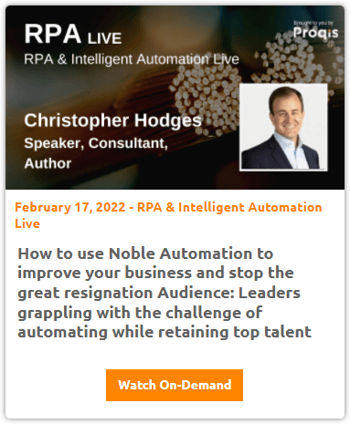 So I think maybe we can be more like Frank Lloyd Wright.
So I think maybe we can be more like Frank Lloyd Wright.
The last one was aligning incentives and culture. I'm gonna summarize this in one page.
There's a lot more to it to get it done obviously but think of Charlie, Munger from Berkshire Hathaway show me the incentive and I will show you the outcome.
And that's what he did.
And that's what they did.
So those are the seven steps that make up what I now call the noble automation now method. Because I, over the years, I put all this together and said, wow, this is repeatable.
So you say, well, though, slot seven, steps, let me ask you a question.
28:38
Which set of steps do you want?
The ones on the left are the ones on the right.
Well, the ones that the writer made on a Marvel, they're beautiful, right?
But the ones on the right are not finished.
The ones in the left will get you to the first floor.
So perfection in the seven steps is not what's required.
Where did I get this term, knobel automation?
Well, it comes from noblesse, oblige, and that means that responsibility of privileged people.
That means we leaders, we team leaders, we business leaders, act as generosity and mobility for those who are less privileged. And why do you do this because of some social justice thing? No, because the best way you treat people is the best way the enterprise goes forward, and that means you, too. So everybody benefits.
It's not a charity event, it's about how to make a company great, How to treat the people in your company. Great. So no automation combines the technology with the inspired leadership. And it maximizes positive outcome to all stakeholders. But let's be clear.
Some people will leaves the company, period.
Many can find their hero's journey with him.
So the last time I saw yens realizing the time, so the last time I saw yes, he was standing on a stage in Stockholm with a multinational audience and he was delivering a talk.
What intelligent automation had done for his company.
The results, the impact.
And you can see, you all know, when you've had to do this, When you're talking about something that you really feel good about. And accomplishments that you've achieved. It's almost like, you go back to being a child, and you feel a clever, And you can see him quivering, almost about that. And the audience was fascinated with what he had to say.
So as he stepped off the, off the stage, I saw him, like I said, bouncing up and down.
And when I realized that, he said, look, let me give you right back to the hotel, this was back in Sweden. Let me give you right back to the hotel. And he was just vibrating. And because, he was exciting, but so excited about what do you do? I don't normally Swedes, you know, but I've never seen a sweet globally. And he was glowing.
So, I thought, I got to curate this into some repeatable pattern that people can take advantage of and use, and I love that gives hurdle all these concepts in one way or another, right? Put them all together.
You have noble automation now, because we want to reverse the McKinsey problem, We want your next transformation, the people you know, your their transformations, to be the glass, mostly fool.
Not the glos gloss, mostly empty, because when you combine it together, you can be the opposite of that tokio experience with the leader who inspires you and the work that you love to do, and it's valued in the company. You can have that kind of good experience.
So, as he asked, drove away, yes, in a brand new Volvo that his bonus had paid for.
I came to realize CEOs, leaders around the world, could take advantage of these ideas, and if we don't, we're going to go back to destroying value faster than we've ever had to destroy value.
So how did you say that?
Well, in my summary, it's three words.
Knowable, automation.
I hope this was useful. Thank you very much for listening.
Fantastic insights, Chris. We really, really appreciate that. I encourage the audience to keep submitting your questions on the time that we have available here to cover them with, with Chris.
You have access here to a real expert, and the leader across multiple industries, that, that, that, that is sharing our practical experience on, people, process, and technologists. Chris, I'm gonna ask you to stop sharing your screen to the audience right now, the presentation screen, so that they can see you in the bigger screen.
Perfect. And, you know, lots of thank you, Chris, for the energy, for the content, for sharing your personal and professional journey so openly with everyone. And that's much appreciated. So questions here, Chris? Nicely done. Lots of kudos from people here, and William Fuller.
He's coming from Boring Oregon, and he's, he's saying, What I think I'm hearing is, their leaders who support their teens, a sanction of Maslow's hierarchy of needs, providing environments conducive to innovation, motivation, and profits.
-1.png?width=600&name=Email%20Graphic%20Virtual%20Conferences%20(4)-1.png) Am I close? Asks William, William, Fuller, William Fuller Exchange questions, yesterday?
Am I close? Asks William, William, Fuller, William Fuller Exchange questions, yesterday?
That man writes fantastic questions, and you're spot on. That's exactly what it is, right? I think about it.
And for some reason, some combination of reasons.
Some leaders can get very myopic and not understand why the team isn't particularly motivated. The big difference is today's workforce won't put up with that garbage anymore.
Know, those of us who have a 4 or 5 at the beginning of our age year, you know, we didn't think we could ask for some of these things that we're asking for.
My son is in his twenties, and guess what, he won't put up with this garbage. He needs Maslow, it's a great way to phrase it in these Maslow's hierarchy of needs to be recognized for, for you to get all of him.
Thank you. Absolutely.
You know.
And, and, that business, you know, as you said, first of all, William Fuller is the, Is The, Is received the award, for best questions, throughout the conference, for sure. Because he asks some of incredibly insightful questions. And this is just one example of that.
And the others continue to add your questions as well and I'll relay them. But, you know, true, true. True, true his point. You know, the highest level on Maslow's hierarchy of needs, a self actualization. And when you're at that level, you know, you're the most innovative, the most creative part of your, of your mind and the and the. And so, what you're talking about here is really engaged in people's minds and souls into what they do aligning personal purpose with their professional purpose. So that, you know, there that work-life balance is a work-life bland that works for them. Am I reading that right?
Absolutely. I think of, for example, Simon Sinek, the power of why.
And frankly, just say the presentation you gave on day one, the power of Y is absolutely essential.
If the power of Y is then connected with the specific things that we're doing, in this case, intelligent automation. And you understand, what is it about intelligent automation that you can, you could do this with other areas as well. What is it about intelligent automation that can engage those people with the power of Y and make it real and holistic? You don't even have to say, We're here 'cause everyone's special and nobody listens to that. You give them direct connections to what they're doing with the power of why their lives, their hero's journey.
Mean, I've seen it, this isn't theory, Right? And now I got to put it in a book.
But it's what actually works, and we all know what doesn't work.
It looks like Tokyo, story. Oh. That's what it looks like. So we want to reverse that.
You know, And that's a great story, because we all have had in our careers. and a lot of people right now have no bosses, like the one you had in Tokyo And.
And so, so here's, here's a question, the theme that has emerged and the questions that I want to relate to you.
What do you do when you're stuck with her boss, like yours?
I mean, how are, you know, I'm thinking now, from the professional perspective, what does a professional do, when his or her boss is like yours, and the, and the, and the, you know, what our options, Where they have, I mean, they can leave for Sure. I mean, you didn't leave right away.
I mean, why did you stay know that?
OK, now, we know that, say, I'm going to ask the best questions.
So far, I've heard what I think that Boston Tokyo. And, of course, we've all had good and bad bosses, but that Boston, Tokyo.
What's the drag?
Think about it, right? If I have realized that concept, if I realized what he was and that he was going to take up the route, we used to call them a dump truck because you couldn't get around him, he was driving too big to get around.
And you couldn't go for it was terrible, but if you think about image the drag and say, I'm going to succeed. I'm going to overcome this dragon in a way. And what I ended up doing, and what I think everyone on the call will end up doing, is, you find a way to develop yourself in the time, and the place you have.
And then there's a time to leith.
There wasn't time to sleep.
But in the meanwhile, boy, didn't know how who doesn't learn from tough things, right?
If you look back on your career, you hated it at the moment.
But, my God, you grow when you. When you're behind a dump truck trying to figure out how to still make progress, you can still figure out how to grow and the project we did was successful.
So, look it, if it were all roses, then you'd never change jobs. And each day at the same level for the rest of your life. I think we need to face our dragons and take the next call to adventure, whenever they come and make the best of it. And just, you know, understand.
There's, there's some great insights, especially for those younger professionals, the Early Career professionals, Mid-career professionals, Hero listening to those. I think the insight you have there about how this challenges become some of the best things that happened to you when it's happening. It's the worst thing that happens to you. Oh, my God, I have this boss. But, in the long run, when you look back, they make you a better professional. They make you a better person. If you are able to face those challenges intentionally, and, And you'll learn so much. I know that, for example, I always think, my competitors, and those who are resistant against the programs that are trying to implement.
Because they forced me to make those programs that much more robust. Raise. Raise your kid.
Yeah, just like looking back, it's easy to say that. Right.
But there have been some, yeah, your career in mind where I didn't want to face the dragon. I wanted to jump off a bridge.
Know, I mean, it really can be very, very difficult but if you think about the hero's journey and realize you're gonna get to the top and then you're gonna start, in other words, I think it would just help us all feel that the better.
So, if we, as bosses can enable that, think what we can achieve in our companies, absolutely. The fight or flight response is real. And we have to think wisely about those options right. Now, another question here from William He asks, how can a good leader bring dragons into the fold?
Transforming the dragons into leaders seems one of the great challenges of leadership.
I completely agree with that to everyone and to William who answered the question.
So I used to have the opinion that everyone can, can just be a great leader, and they can be shaped into that, and they can go to the right leadership development courses.
And the truth is, I think, some people can, and you can see who they are, and then there are some people who are just, on this planet to irritate the rest of us.
And, no. I mean, there are there are psychopaths there, all kinds of things. Right? They stay the dragon.
So, I think if you're it, I was talking to the head of leadership development for JP morgan.
And she, her, her opinion about that was very clear. They, they make a very clear distinction.
They have some criteria.
They look at and say, are they open to feedback, do they respond, you know, in a private environment? Well, they tell you what their development needs are, at least recognize some of them. And if they don't do those things, you know, what the decision they make.
No.
But if they do those things like, oh, this person is coachable, right? So, I think the ultimate question, if you're a leadership coach, and William I think, is doing some of that, as well, I'm not sure.
.png?width=742&name=Screenshot%20(4).png) But if you're a leadership coach, and your client is on, I'm helpful.
But if you're a leadership coach, and your client is on, I'm helpful.
Know, they, I think, psychiatrists would call if they have a character disorder that can be cured. But most people have some degree of openness to development and change. That would be my answer to that.
That is so real. Sorry, Because, A, While we, As as, as the question implies, and I know you have discussed this already. You know, when you create value, and you engage those leaders, some of them will come around, and they will change their mind.
But, by all means, you need to know the difference between a leader that you can bring along and, what you describe as a, as the, this immutable dragon that I call the Energy Vampire. Energy vampires are real real. And when your boss is an energy vampire, well, you do not want to interact. If you get oscillator with them in the room. They will suck your soul away, So, you need to just let them die a slow death in a dark cubicle somewhere, and find another path.
And try things that people is like, wrestling pigs in the mud. And you're just gonna get dirty. I completely agree.
Yeah, and I think that's an important concept, because I think people sometimes try too hard to convince the resistance that a should come, the leaders who are resistant, that they should come on board. And that can really be a waste of energy sometimes. But, all right, so let me reframe here. Come back to the, to the central topic of noble automation.
The concepts that you discuss here are very, very important, and, and I think both of us, and many of our audience have experienced, that they are, that they work, if they're done in the way that you bring that you prescribed here.
My question to you, is, that when you see leadership today, across organizations, the highest level of leadership, it feels to me that they believe in some of these concepts, but they don't have either the courage or the discipline to follow through.
Curious about your perspectives, Are we lacking courage in our organizations to follow through on some of the fangs? And why are leaders at the highest level? So, insecure about this. Things that, you do just, that you said the insecure P So, let me tell you what this is about.
I reached out to, for another project, or reached out to several hundred, fortune, whatever, 500 CEOs, CHR Rose. and I was working on this research project. And then I started formalizing my book and I went back to the same people.
And I interviewed for an hour each and then a second follow up interview. 14: CEOs are ...
from these top tier firms, I hear people say, they interviewed thousands, religion, You can't interview one thousand people, have an hour long conversation. You don't do that with one thousand people, right?
And what I've found in every one of the male, female, whatever the country was, when the industry was, and that wasn't every country in the world was like 14 people, is that there was a level of confidence in these people and, and humility. And these are really senior people, right?
So Brian ..., who ran AIG for years, was one of the people who I interviewed And this is this Rough and Tough Western Cau wage insurance leader. That's done this stuff for 50 years: He's the God of Insurance!
My God, he was a humble, confident, secure man.
Right?
Alan Cobourg, CEO of Assurance ran. master were to say: Hey people for Etsy.
These are just stable, confident. Secure, humble people. Right? They knew you didn't see that bravado stuff, even from Brian who could have had all the bravado in the world.
I interviewed him on his ranch somewhere in Texas, see some like the show, Yellowstone Totally humble rock solid leader. So I think that's what it is.
Just say that the people who were like that, the people who are full of themselves and are insecure and chairman food. Not insecure about something, right? All the leaders I interviewed, secure, but something.
But that's where the humility comes into place.
So what I saw in that pattern was confidence, and an ability to be humble enough to know what they didn't, didn't know.
As a matter of fact, I had Rodger Chrome who's the CEO of Lighthouse.
And he said to me, the reason I'm talking, I asked him this. They said, Why are you talking to me?
He said, The reason I'm talking to you, and the reason I want you write these ideas in your book, Which are in my book.
It's because it's what I wish. I'd known getting to this job. I didn't have to do some of the things I did.
I didn't have to be some of the ways I was. It was not helpful.
And I want the people who are coming up. And here's this guy, He's located the world in this space, right in the DC. Area. So, that that would be my take away. We can all vow in deference to the humility and confidence of those leaders, And look for them and try to bring it out of the ones who don't show it.
Excellent. Chris. Thank you so much for sharing your wisdom and expertise. one final quick question here, because we are a bit over time. What is the best way for us to connect with you, to get a copy of your book, to learn more about what ... looks like? A fantastic, novel, automation now is my website. I will send anyone on this conference. Who sends me an e-mail? Let's say. So it's not the thousands of people in the community, the people who are on this call, if they would, like an electronic version of my book, I will send it to. But I would be deeply in your debt, if you will go to Amazon and buy. And then write a review. The money's, not the point. The review, yes. So I'll be happy to send you a review. So Novel Automation now, send me an e-mail, directly, Chris, at novel Automation now dot com.
That's terrific. And for those of you who are logged on as well, check out the LinkedIn post. I have Chris name in the LinkedIn posts. You can click on it, connect directly with him, thank him publicly for what he is doing, sharing his expertise with us.
Thank you so much on, behalf of our global community. With nearly 800,000 subscribers now, we're going to be consuming this content over time.
We're so grateful that for your generosity in sharing, your wisdom and expertise with us, fantastic, you'll say, Thank you very much. Happy to have you back, by the way.
Thank you. Thank you, Chris. Have a great rest of your day.
Ladies and gentlemen, that was Chris Hodges, author Executive Leader on Nobel Automation. Now, we're going to be taken up right here, and we're going to be coming back at the top of the hour, with another industry leader For us to learn with and the share and ask questions about, and I'm talking about Team Bracken. Now Tim is going to talk about to us about his, first of all. He's the Director of Automation for Geisinger. And he's going to be talking to us about Art, Centers of Excellence and that kind of continuous improvement and innovation around your intelligent automations. And he has his title is What Got You Here Won't Get You There, So let's see what we can learn in our next session with Tim. And very much looking forward to it. So, I'll see you at the top of the hour. Thank you, everyone.

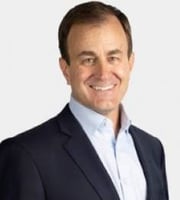 Christopher Hodges,
Christopher Hodges,
Speaker, Consultant, Author

View our schedule of industry leading free to attend virtual conferences. Each a premier gathering of industry thought leaders and experts sharing key solutions to current challenges.
View Schedule of EventsWelcome to BTOES Insights, the content portal for Business Transformation & Operational Excellence opinions, reports & news.
-------------------------------------------------------
Search for anything
Insights from the most progressive thought leaders delivered to your inbox.
Insights from the world's foremost thought leaders delivered to your inbox.
Being a hero is all about creating value for others. Please invite up to 5 people in your network to attend this premier virtual conference, and they will receive an invitation to attend.
If it’s easier for you, please enter your email address below, and click the button, and we will send you the invitation email that you can forward to relevant people in your network.
View our schedule of industry leading free to attend virtual conferences. Each a premier gathering of industry thought leaders and experts sharing key solutions to current challenges.
View Schedule of EventsWatch On-Demand Recording - Access all sessions from progressive thought leaders free of charge from our industry leading virtual conferences.
Watch On-Demand Recordings For FreeDelivered by the industry's most progressive thought leaders from the world's top brands. Start learning today!
View All Courses NowThe premier Business Transformation & Operational Excellence Conference. Watch sessions on-demand for free. Use code: BFH1120
Watch On-DemandInsights from the most progressive thought leaders delivered to your inbox.
Insights from the world's foremost thought leaders delivered to your inbox.
Being a hero is all about creating value for others. Please invite up to 5 people in your network to also access our newsletter. They will receive an invitation and an option to subscribe.
If it’s easier for you, please enter your email address below, and click the button, and we will send you the invitation email that you can forward to relevant people in your network.
Courtesy of Nintex Pty's Paul Hsu, below is a transcript of his speaking session on 'Improve employee productivity during and post-COVID by ...
Read this article about HP, Best Achievement in Operational Excellence to deliver Digital Transformation, selected by the independent judging panel, ...
Read this article about BMO Financial Group, one of our finalists, in the category Best Achievement in Operational Excellence to deliver Digital ...
Read this article about Cisco, one of our finalists, in the category Best Achievement of Operational Excellence in Internet, Education, Media & ...


